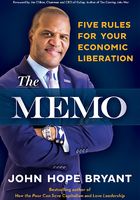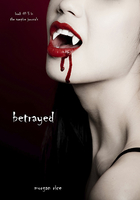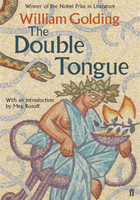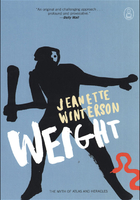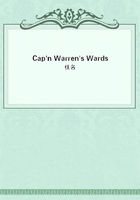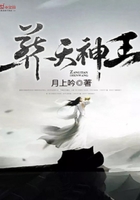Because the Questura was so near, it was easier for Brunetti to walk to his office than go back on the launch with the uniformed men. He went the back way, passing the Evangelical church and coming up on the Questura from the right side of the building. The uniformed man at the front entrance opened the heavy glass door as soon as he saw Brunetti, who headed for the stairway that would take him to his office on the fourth floor, passing beside the line of foreigners seeking residence and work permits, a line that extended halfway across the lobby.
His desk, when he reached his office, was just as he had left it the day before, covered with papers and files sprawled across it in no particular order. The ones nearest to hand contained personnel reports, all of which he had to read and comment upon as part of the Byzantine process of promotion through which all State employees had to go. The second pile dealt with the last murder in the city, the brutal, crazed beating to death of a young man that had taken place a month ago on the embankment of the Zattere. So savagely had he been beaten that the police were at first sure it was the work of a gang. Instead, after only a day, they had discovered that the killer was a frail wisp of a boy of sixteen. The victim was homosexual, and the killer's father a known Fascist who had instilled in his son the doctrines that Communists and gays were vermin who deserved only death. So, at five one bright summer morning, these two young men had come together in a deadly trajectory beside the waters of the Giudecca Canal. No one knew what had passed between them, but the victim had been reduced to such a state that the family had been denied the right to see his body, which had been consigned to them in a sealed coffin. The piece of wood which had been used to beat and stab him to death sat in a plastic box inside a filing cabinet on the second floor of the Questura. Little remained to be done, save to see that the psychiatric treatment of the killer continued and he was not allowed to leave the city. The State made no provision for psychiatric treatment for the family of the victim.
Instead of sitting at his desk, Brunetti reached into one of the side drawers and pulled out an electric razor. He stood at his window to shave, staring out at the fa?ade of the church of San Lorenzo, still covered, as it had been for the last five years, with the scaffolding behind which extensive restoration was said to be taking place. He had no proof that this was happening, for nothing had changed in all these years, and the front doors of the church remained forever closed.
His phone rang, the direct line from outside. He glanced at his watch. Nine-thirty. That would be the vultures. He switched off the razor and walked over to his desk to answer the phone.
'Brunetti.'
'Buon giorno, Commissario. This is Carlon,' a deep voice said and went on, quite unnecessarily, to identify himself as the Crime Reporter for the Gazzettino.
'Buon giorno, Signor Carlon.' Brunetti knew what Carlon wanted; let him ask.
'Tell me about that American you pulled out of the Rio dei Mendicanti this morning.'
'It was officer Luciani who pulled him out, and we have no evidence that he was American.'
'I stand corrected, Dottore,' Carlon said with a sarcasm that turned apology to insult. When Brunetti didn't respond, he asked, 'He was murdered, wasn't he?' making little attempt to disguise his pleasure at the possibility.
'It would appear so.'
'Stabbed?'
How did they learn so much, and so quickly? 'Yes.'
'Murdered?' Carlon repeated, voice heavy with feigned patience.
'We won't have any final word until we get the results of the autopsy that Doctor Rizzardi is conducting this afternoon.'
'Was there a stab wound?'
'Yes, there was.'
'But you're not sure the stab wound was the cause of death?' Carlon's question ended with an incredulous snort.
'No, we're not,' Brunetti replied blandly. 'As I explained to you, nothing will be certain until we have the results of the autopsy.'
'Other signs of violence?' Carlon asked, displeased at how little information he was getting.
'Not until after the autopsy,' Brunetti repeated.
'Next, are you going to suggest he might have drowned, Commissario?'
'Signor Carlon,' Brunetti said, deciding that he had had enough, 'as you well know, if he was in the water of one of our canals for any length of time, then it is far more likely that disease would have killed him than that he would have drowned.' From the other end, only silence. 'If you'll be kind enough to call me this afternoon, about four, I'll be glad to give you more accurate information.' It was Carlon whose reporting had caused the story of the last murder to become an exposé of the private life of the victim, and Brunetti still felt enormous rancour because of it.
'Thank you, Commissario. I'll certainly do that. One thing – what was the name of that officer again?'
'Luciani, Mario Luciani, an exemplary officer.' As all of them were when Brunetti mentioned them to the Press.
'Thank you, Commissario. I'll make a note of that. And I'll be sure to mention your cooperation in my article.' With no further ado, Carlon hung up.
In the past, Brunetti's dealings with the Press had been relatively friendly, at times more than that, and at times he had even used the Press to solicit information about a crime. But in recent years, the ever-strengthening wave of sensationalistic journalism had prevented any dealings with reporters that were more than purely formal; every speculation he might voice would be sure to appear the following day as an almost direct accusation of guilt. So Brunetti had become cautious, providing information that was severely limited, however accurate and true reporters might know it to be.
He realized that, until he heard from the lab about the ticket in the man's pocket or until he got the report on the autopsy, there was very little he could do. The men in the lower offices would be calling the hotels now, and they would inform him if they turned up something. Consequently, there was nothing for him to do but continue to read and sign the personnel reports.
An hour later, just before eleven, the buzzer on his intercom sounded. He picked up the receiver, knowing too well who it would be. 'Yes, Vice-Questore?'
Momentarily surprised at being directly addressed, having hoped, perhaps, to have found Brunetti absent or asleep, his superior, Vice-Questore Patta, took a moment to respond. 'What's all this about the dead American, Brunetti? Why wasn't I called? Have you any idea of what this will do to tourism?' Brunetti suspected that the third question was the only one in which Patta took any real interest.
'What American, sir?' Brunetti asked, voice filled with feigned curiosity.
'The American you pulled out of the water this morning.'
'Oh,' Brunetti said, this time with polite surprise. 'Is the report back so soon? He was American, then?'
'Don't be cute with me, Brunetti,' Patta said angrily. 'The report isn't back yet, but he had American coins in his pocket, so he's got to be an American.'
'Or a numismatist,' Brunetti suggested amiably.
There followed a long pause which told Brunetti the Vice-Questore didn't know the meaning of the word.
'I told you not to be smart, Brunetti. We're going to work on the assumption that he's an American. We can't have Americans being murdered in this city, not with the state of tourism this year. Do you understand that?'
Brunetti fought back the impulse to ask if it would be all right to kill people of other nationalities – Albanians, perhaps? – but, instead, said only, 'Yes, sir.'
'Well?'
'Well what, sir?'
'What have you done?'
'Divers are searching the canal where he was found. When we find out when he died, we'll have them search the places from where he might have drifted, assuming he was killed somewhere else. Vianello is checking for drug use or dealing in the neighbourhood, and the lab is working on the things we found in his pockets.'
'Those coins?'
'I'm not sure we need the lab to tell us they're American, sir.'
After a long silence that said it would not be wise to bait Patta any further, his superior asked, 'What about Rizzardi?'
'He said he'd have the report to me this afternoon.'
'See that I'm sent a copy of it,' he ordered.
'Yes, sir. Will there be anything else?'
'No, that's all.' Patta replaced his phone without saying anything else, and Brunetti went back to reading the reports.
When he finished with them, it was after one. Because he didn't know when Rizzardi would call, and because he wanted to get the report as quickly as possible, he decided not to go home for lunch, nor spend the time going to a restaurant, though he was hungry after the long morning. He decided to go down to the bar at the foot of Ponte dei Greci and make do with a few tramezzini.
When he walked in, Arianna, the owner, greeted him by name and automatically placed a wine glass on the counter in front of him. Orso, her ancient German shepherd, who had developed a special fondness for Brunetti over the course of the years, hauled himself arthritically to his feet from his regular place beside the ice-cream cooler and tottered over to him. He waited long enough for Brunetti to pat him on the head and pull gently at his ears and then collapsed in a heap at his feet. The many regulars in the bar were accustomed to stepping over Orso and tossing him bits of crusts and sandwiches. He was especially fond of asparagus.
'What would you like, Guido?' Arianna asked, meaning tramezzini and automatically pouring him a glass of red wine.
'Give me a ham and artichoke, and one with shrimp.' Fan-like, Orso's tail began to beat softly against his ankle. 'And one asparagus.' When the sandwiches came, he asked for another glass of wine and drank it slowly, thinking of the way things would be complicated if the dead man did turn out to be American. He didn't know if there would be questions of jurisdiction, decided not to think about that.
As if to prevent him, Arianna said, 'Too bad about the American.'
'We're not sure that he is, not yet.'
'Well, if he is, then someone is going to start crying "terrorism", and that's not going to do anyone any good.' Though she was Yugoslavian by birth, her thinking was entirely Venetian: business first and above all.
'There are lots of drugs in that neighbourhood,' she added, as if talking about it could make drugs be the cause. He remembered that she also owned a hotel, so the very thought of the mere rumour of terrorism was bound to fill her with righteous panic.
'Yes, we're checking that, Arianna. Thanks.' As he spoke, a stalk of asparagus worked itself loose from his sandwich and fell to the floor at Orso's nose. And, when that one was gone, another. It was difficult for Orso to get to his feet, so why not let him eat takeaway?
He placed a ten-thousand-lire note on the counter and pocketed his change when she handed it to him. She hadn't bothered to ring it up on the cash register, so the sum would go unreported and, therefore, untaxed. He had, years ago, ceased caring about this perpetual fraud committed against the State. Let the boys from the Finance Police worry about that. The law said she had to ring it up and give him a receipt; if he left the bar without it, both of them were liable to fines of as much as hundreds of thousands of lire. The boys from Finance often waited outside bars, shops, and restaurants, watching through the windows as business took place, then stopped emerging clients and demanded to be shown their receipts. But Venice was a small town, and all the men from Finance knew him, so he'd never be stopped, not unless they brought in extra police from outside the city and had what the Press had taken to calling a 'blitz', staking out the entire commercial centre of the city and, in a day, taking in millions of lire in fines. And if they stopped him? He'd show them his warrant card and say he'd stopped to use the toilet. Those same taxes paid for his salary; this was true. But that no longer made any difference to him, nor, he suspected, to the majority of his fellow citizens. In a country where the Mafia was free to murder when and whom it pleased, the failure to produce a receipt for a cup of coffee was not a crime that interested Brunetti.
Back at his desk, he found a note telling him to call Doctor Rizzardi. When Brunetti did, he found the Coroner still at his office on the cemetery island.
'Ciao, Ettore. It's Guido. What have you got?'
'I took a look at his teeth. All the work is American. He has six fillings and one root canal. The work stretches back over years, and there's no doubt about the technique. It's all American.'
Brunetti knew better than to ask him if he was sure.
'What else?'
'The blade was four centimetres wide and at least fifteen long. The tip penetrated the heart, just as I thought. It slipped right between the ribs, didn't even scrape them, so whoever did it knew enough to hold the blade horizontally. And the angle was perfect.' He paused for a moment, then added, 'Since it was on the left side, I'd say that whoever did it was right-handed or at least used his right hand.'
'What about his height? Can you tell anything?'
'No, nothing definite. But he had to be close to the dead man, standing face to face.'
'Signs of a struggle? Anything under his nails?'
'No. Nothing. But he'd been in the water about five or six hours, so if there was anything to begin with, it's likely it would have been washed away.'
'Five or six hours?'
'Yes. I'd say he died about midnight, one o'clock.'
'Anything else?'
'Nothing particular. He was in very good shape, very muscular.'
'What about food?'
'He ate something a few hours before he died. Probably a sandwich. Ham and tomato. But he didn't drink anything, at least not anything alcoholic. There was none in his blood, and from the look of his liver, I'd say he drank very little, if at all.'
'Scars? Operations?'
'He had a small scar,' Rizzardi began, then paused and Brunetti heard the rustle of papers. 'On his left wrist, half-moon shaped. Could have been anything. Never been operated on for anything. Had his tonsils, his appendix. Perfect health.' Brunetti could tell from his voice that this was all Rizzardi had to give him.
'Thanks, Ettore. Will you send a written report?'
'Does His Superiorship want to see it?'
Brunetti grinned at Rizzardi's title for Patta. 'He wants to have it. I'm not sure he's going to read it.'
'Well, if he does, it's going to be so filled with medical school jargon that he'll have to call me to interpret it for him.' Three years ago, Patta had opposed Rizzardi's appointment as Coroner because the nephew of a friend of his was just then finishing medical school and was in search of a government job. But Rizzardi, with fifteen years' experience as a pathologist, had been appointed instead, and ever since then he and Patta had conducted guerrilla warfare against one another.
'I'll look forward to reading it, then,' Brunetti said.
'Oh, you won't be able to understand a word of it. Don't even try, Guido. If you have any questions, call me and I'll explain it to you.'
'What about his clothing?' Brunetti asked, though he knew this was none of Rizzardi's responsibility.
'He was wearing jeans, Levi's. And he had one Reebok, size eleven.' Before Brunetti could say anything, Rizzardi continued, 'I know, I know. That doesn't mean he's American. You can buy Levi's and Reeboks anywhere today. But his underwear was. I've sent it over to the lab boys, and they can tell you more, but the labels were in English and said "Made in USA".' The doctor's voice changed, and he displayed a curiosity that was unusual for him. 'Have your boys heard anything from the hotels? Any idea of who he was?'
'I haven't heard anything, so I guess they're still calling.'
'I hope you find out who he is so you can send him home. It's no good thing, to die in a strange country.'
'Thanks, Ettore. I'll do my best to find out who he is. And send him home.'
He set the phone down. An American. He had carried no wallet, no passport, no identification, no money aside from those few coins. All of that pointed to a street crime, one that had gone horribly wrong and ended in death instead of robbery. And the thief had a knife and had used it with either luck or skill. Street criminals in Venice had some luck, but they seldom had any skill. They grabbed and ran. In any other city, this might be taken for a mugging that had gone wrong, but here in Venice this sort of thing simply didn't happen. Skill or luck? And if it was skill, whose skill was it and why was it necessary that skill be employed?
He called down to the main office and asked if they had had any luck with the hotels. The firstand second-class hotels had only one missing guest, a man in his fifties who had not returned to the Gabriele Sandwirth the previous night. The men had begun to check the smaller hotels, one of which had an American man who had checked out the previous night but whose description didn't fit.
It was possible, Brunetti realized, that he could have been renting an apartment in the city; in that case, days could pass before he was reported missing, or he simply might not be missed.
He called the lab and asked to speak to Enzo Bocchese, the Chief Technician. When he came on the phone, Brunetti asked, 'Bocchese, have you got anything on the things in his pockets?' It wasn't necessary to specify whose pockets.
'We used the infra-red on the ticket. It was so soaked that I didn't think we'd be able to get anything. But we did.'
Bocchese, terribly proud of his technology and the things he could do with it, always needed to be prompted, and then praised. 'Good. I don't know how you do it, but you always manage to find something.' Would that this were even close to the truth. 'Where was it from?'
'Vicenza. Round trip to Venice. Bought yesterday and cancelled for the trip from Vicenza. I've got a man coming from the station to see if he can tell us anything, from the cancellation, about what train it was, but I'm not sure he can.'
'What class was it, first or second?'
'Second.'
'Anything else? Socks? Belt?'
'Rizzardi tell you about the clothes?'
'Yes. He thinks the underwear is American.'
'It is. No question. The belt – he could have bought that anywhere. Black leather with a brass buckle. The socks are synthetic. Made in Taiwan or Korea. Sold everywhere.'
'Anything else?'
'No, nothing.'
'Good work, Bocchese, but I think we don't need more than the ticket to be sure.'
'Sure of what, Commissario?'
'That he's American.'
'Why?' the technician asked.
'Because that's where the Americans are,' Brunetti replied. Any Italian in the area knew of the base in Vicenza, Caserma Something-or-Other, the base where thousands of American soldiers and their families lived, even now, so many years after the end of the war. If he was right, this would certainly raise the spectre of terrorism, and there were certain to be questions of jurisdiction. The Americans had their own police out there, and the instant someone so much as whispered 'terrorism', there could well be NATO and possibly Interpol. Or even the CIA, at the thought of which Brunetti grimaced, thinking of how Patta would bask in the exposure, the celebrity that would follow upon their arrival. Brunetti had no idea of what acts of terrorism were supposed to feel like, but this didn't feel like one to him. A knife was too ordinary a weapon; it didn't call attention to the crime. And there had been no call to claim the murder. Surely, that might still come, but it would be too late, too convenient.
'Of course, of course,' Bocchese said. 'I should have thought of that.' He paused long enough for Brunetti to say something, but when he didn't, Bocchese asked, 'Anything else, sir?'
'Yes. After you speak to the man from the railways, let me know if he can tell you anything about the train he might have taken.'
'I doubt he can, sir. It's just an indentation in the ticket. We can't pull up anything that might identify a train. But I'll call you if he can tell us. Anything else?'
'No, nothing. And thanks, Bocchese.'
After they hung up, Brunetti sat at his desk and stared at his wall, considering the information and the possibilities. A young man, in perfect physical shape, comes to Venice on a round-trip ticket from a city where there is an American military base. He had American dental work, and he carried American coins in his pocket.
Brunetti reached for the phone and dialled the operator. 'See if you can get me the American military base in Vicenza.'

